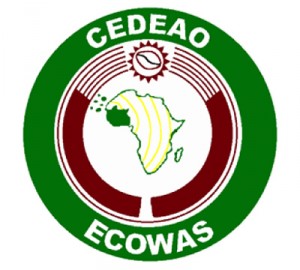ECOWAS in financial difficulty
 The Economic Community of West African States (ECOWAS) is going through financial difficulty; owing largely to dwindling sources of income, Mrs Salamatu Hussaini Suleiman, the ECOWAS Commissioner for Political Affairs Peace and Security has said.
The Economic Community of West African States (ECOWAS) is going through financial difficulty; owing largely to dwindling sources of income, Mrs Salamatu Hussaini Suleiman, the ECOWAS Commissioner for Political Affairs Peace and Security has said.
She explained that ECOWAS relies mostly on its community levy, which is often not remitted or delayed; this had put the Commission under a lot of pressure and forced to re-prioritize its activities.
Mrs Suleiman made the disclosure in Accra at the opening of a two-day tripartite meeting of the ECOWAS designated Training Centres of Excellence (TCEs).
The meeting seeks to discuss the modalities for enhancing technical and operational cooperation between the ECOWAS Commission and the TCEs in the areas of training and research, taking into consideration the evolving peace and security situation in the region.
“Happily, the second window for funding of the African Peace and Security Architecture is being concluded and it is heartwarming to note that bottlenecks, which hinder successful implementation of the first phase are being eliminated,” she said.
“The support to the TCEs will now be at the regional level and not at the continental level as the funds will now be made available directly to ECOWAS and not through the African Union as was the case in the previous phase,” she added.
Mrs Suleiman said it was their hope that the TCEs would be able to serve as research think-tanks for ECOWAS in the formulation of policies that would enhance peace and security within the region.
“Within the context of regional peace and security challenges characterised by maritime insecurity and terrorism ECOWAS is contributing to the fight against terrorism with the mobilisation of international support for the Multi-National Joint Task Force comprising Benin, Cameroun, Chad, Niger and Nigeria,” she stated.
She said ECOWAS as part of its Counter-Terrorism Strategy and Implementation Plan, is also assisting Member States in their efforts to prevent and combat terrorism.
“So far over 300 law enforcement agents in ECOWAS Member States National and Regional levels have been trained,” she noted.
The Commissioner said recent terrorist attacks in Mali, Burkina Faso and Cote d’Ivoire reinforces the lessons learned from their deployment in the African Union Led International Support to Mali on the need to include Counter-Terrorism Warfare in the training of the Armed Forces in the region.
“In the light of unabated increase in armed conflicts and general insecurities across Africa and particularly in our sub-region, our status, recognition and reputation as ECOWAS-designated TCEs is being overtly and covertly assessed by all stakeholders and the good people of our various countries, to engage our overall institutional capacity, resilience and impact,” Major General Obed Boamah Akwa, the Commandant of the Kofi Annan International Peacekeeping Training Centre said.
“Indeed these recurrent security challenges in Africa ranging from trafficking in hard drugs, human trafficking, uncontrolled migration, violent extremism, secessionist impulses, and unfinished political transitions in Libya and corruption all standard in the way of the much-touted African renaissance and the Africa rising narrative.
“As TCEs we have a role to play in addressing these challenges,” he added.
Source: GNA
